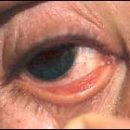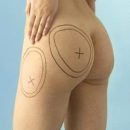Unexpected attacks of sleepiness at the wrong time are signs of narcolepsy. Most often, this disease has a hereditary nature, however, there are cases when narcolepsy is a sign of other diseases. Read more about the secondary narcolepsy in the article.
Content
Narcolepsy is a disease that manifests the sudden attacks of drowsiness. Man just falls on the floor and falls asleep for a short time. Most often, the cause of narcolepsy is unknown, but in some cases it can be a manifestation of other diseases. These diseases cause damage to the brain structures located in the areas of the brain responsible for the occurrence of the sleep phase with dreams. As a result, symptoms of narcolepsy arise. Such narcolepsy is called secondary.
Diseases contributing to the emergence of narcopsy symptoms are:
- multiple sclerosis;
- Motonic dystrophy;
- Parkinson's disease;
- Sarcoidosis.
 In order to suspect secondary narcolepsy, enough to ask himself two questions:
In order to suspect secondary narcolepsy, enough to ask himself two questions:
- Do you have any neurological disease?
- Do you have the following symptoms: attacks of sleepiness, muscle weakness, sleep paralysis (sensation of immobility during sleep), hallucinations at the time of waste.
If you answered «Yes» on both of these questions, then you probably suffer from narcolepsy caused by any other disease. In order to establish it for sure, you need to consult a doctor.
Diagnosis of secondary narcolepsy
This disorder requires the help of an experienced physician who has good training in the field of diagnosis and treatment of complex sleep disorders. The doctor will know what methods of research is necessary. Doctor will be able to determine the essence of your problems and help you get the best possible treatment.
The doctor will need information about previously transferred diseases. Tell the doctor about all diseases that could have an impact on your brain or nerves. The doctor will need detailed information about:
- When there were signs of the underlying disease;
- What symptoms were detected from you;
- What methods of treatment you used;
- How successful was the treatment.
Tell the doctor also about which of the symptoms of narcolepsy you have. This will allow you to establish how the occurrence of these problems with the course of a somatic disease.
In order to establish certainly, you do not suffer from narcolepsy, you will need to conduct two sleep research:
- Tool study of night sleep, also called polysomnography; This study involves recording physiological parameters throughout the night sleep.
- Multiple latency test to sleep (MTLS); This is a day study, providing for an entry of at least 4 episodes (attempts) of sleep.
A polysomnographic study includes the registration of brainwaves, the work of the heart and breathing during sleep. In addition, foot and hands and hands are recorded during sleep. The study will allow you to establish whether you do not suffer from other problems of sleep, causing you attacking drowsiness. Examples of these problems are sleep apnea and frustration of periodic limb movements.
People suffering from narcolepsy, often tend to fall asleep in an unusual time during the day. MTLS will allow you to measure how quickly you fall asleep during the daytime. The study also will also show what kind of sleep you have during these episodes. MTLS shows whether you have a dream. In adults, usually during daytime dream dreams are not marked.
Treatment of secondary narcolepsy
The first step is to identify and treat the disease underlying the appearance of the specified symptoms. If the symptoms of narcolepsy are preserved, then a specific treatment may be required.
The most common way of treating narcolepsy is the appointment of drug therapy. Most likely, the doctor will recommend the reception of psychostimulants that will help you keep waking up the daytime. Currently, a large number of drugs that can be used are known. Selection of the drug, to the greatest extent suitable for you, may require a certain time. The doctor should also choose the optimal dosage for you.
Narcolepsy may be accompanied by such a symptom like a cataplection (severe muscular weakness). For the treatment of catapoles, the doctor may appoint another type of drugs.









